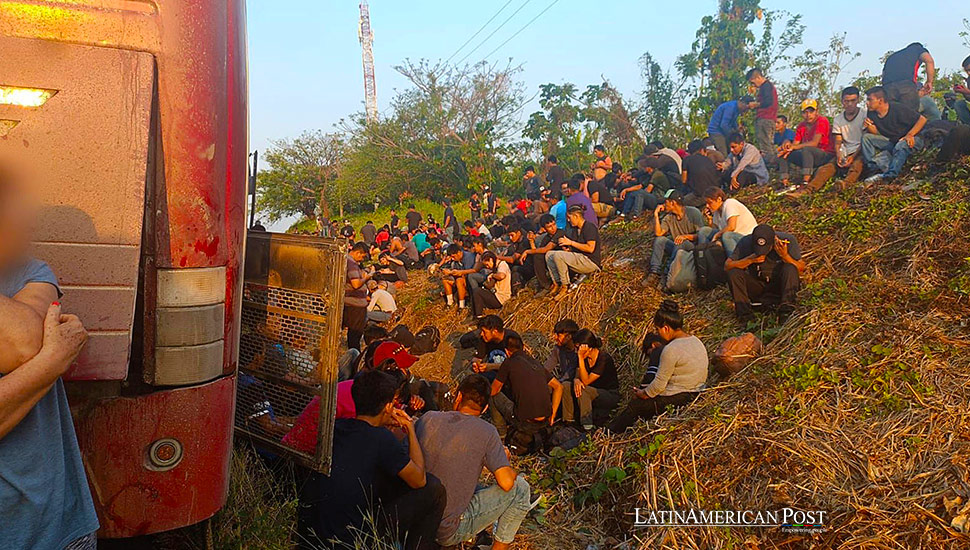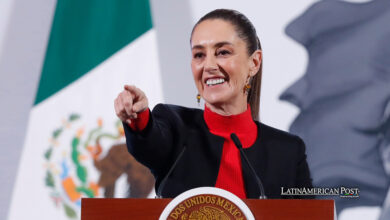Mexico’s LGBTI+ Migrants Seek Inclusion at Southern Border

In an unprecedented initiative at Mexico’s southern border with Guatemala, organizations champion LGBTI+ migrant inclusion, aiming to integrate them into the regional economy through employment and financial services.
In a groundbreaking effort on Thursday, migrant advocacy groups and LGBTI+ collectives, driven by the courage and determination of the sexual diversity community migrants, inaugurated the first meeting focused on their inclusion and integration at Mexico’s southern border with Guatemala. This initiative, a testament to their resilience, marks a significant step toward economic and social integration for a frequently marginalized group.
Pioneering Organizations Unite for Change
The pioneering organizations, including Casa Frida Refugio LGBT+, the International Organization for Migration (OIM), and the Coalition for Humane Immigrant Rights (CHIRLA), have come together to create a dialogue among various stakeholders committed to enhancing the lives of sexual diversity migrants in this key geographical area.
Sebastián Rodríguez, a leading activist at the event, introduced ‘Educafin,’ an initiative aimed at facilitating banking and financial services for migrants while educating the local population, business owners, and local authorities about the benefits of inclusivity. Rodríguez, filled with hope and optimism, highlighted the potential for this initiative to transform Tapachula into ‘the California of Mexico’ if solidarity and cooperation prevail, turning the city into a hub of human and economic development.
“Our programs benefit between 100 and 150 people each month, many of whom stay in the area for six months to a year,” Rodríguez explained. “This makes it crucial to leverage their talents through training programs geared toward securing their first formal employment in Mexico, benefiting both the private sector and receiving governmental support.”
Addressing Poverty and Creating Opportunities
The project aims to address poverty among vulnerable migrant populations, specifically targeting LGBTQ+ individuals by creating dignified and secure job opportunities. It also seeks to meet the staffing needs of local businesses, aligning organizational support with migration process analyses to foster economic growth and client expansion.
Esther Palacios Díaz, a private sector representative involved in the initiative, emphasized the importance of informed employment strategies. “There is a lot of information we need to access to provide employment,” she said. “These positions are often temporary but can significantly contribute to the region. Overcoming widespread ignorance sometimes scares us from contributing, yet we often have the solutions.”
The Contrata LGBTI+ program, coordinated by Sofía de la Paz, covers areas including Mexico City, Tapachula, and Monterrey. De la Paz highlighted the unique challenges faced by this group, such as language barriers, lack of legal recognition, and discrimination in the workplace. ‘Being sexually diverse individuals is complex enough, but many are also refugees and asylum seekers in Mexico, which compounds their difficulties in securing employment,’ she explained.
NGOs recognize that formal employment of migrants helps individuals and contributes economically and fiscally to the country. Migrants often work in restaurants, administrative positions, and customer service roles, playing crucial roles in the sectors they join. The economic benefits of their contributions include increased consumer spending, job creation, and tax revenue.
This initiative comes when Latin America sees varying degrees of progress in the rights and acceptance of LGBTQ+ communities. Mexico’s efforts in integrating LGBTI+ migrants into its workforce stand out as a beacon of progressivism, reflecting a broader regional trend towards greater inclusion and acceptance.
Catalysts for Legal and Social Change
However, challenges remain, particularly in areas with less social and legal support for sexual diversity. Discrimination and lack of proper legal frameworks, such as non-discrimination laws and recognition of same-sex relationships, still hinder full integration in Mexico and across Latin America. Initiatives like the one launched in Tapachula are vital not only for their direct impact but also as models for similar programs across the region, and as catalysts for legal and social change.
By fostering an environment of inclusivity and support, these programs aim to uplift individuals and create ripple effects throughout the economy, enhancing the social fabric of the communities involved. As Latin America grapples with waves of migration and the nuances of sexual diversity, the success of such programs could herald a new era of inclusivity and prosperity, setting a benchmark for others to follow. The societal benefits include increased tolerance and acceptance, cultural enrichment, and a more diverse and vibrant community.
Also read: Mexico’s Church Criticizes Cult of Santa Muerte Amid Political Tensions
While the road ahead is fraught with challenges, the proactive steps taken by organizations at Mexico’s southern border illuminate the potential for significant social and economic advancements. The vision for a more inclusive and prosperous region through collaborative efforts seems necessary and achievable. The success of these initiatives relies on the collective action and commitment of various stakeholders, including NGOs, local businesses, and government agencies.





